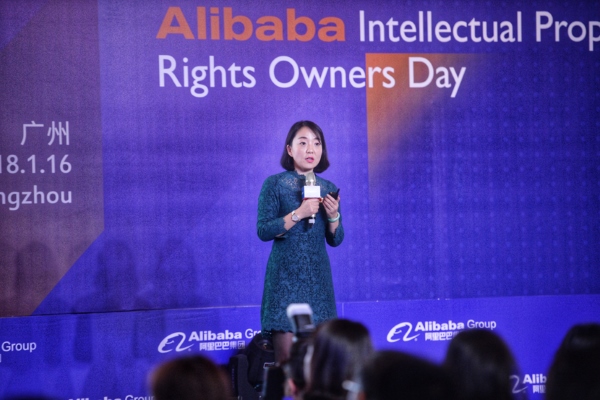
Just days after being relisted on the US Trade Representative’s Notorious Markets list, Alibaba has come out fighting, spearheading a new series of online and offline intellectual property protection initiatives.
According to the Chinese e-commerce giant, which announced the measures at an Alibaba Anti-Counterfeiting Alliance (AACA) gathering of brands and rights holders in Guangzhou, the initiatives will secure its online platforms and further tighten intellectual property rights (IPR) protection.
The move comes just days after the US Trade Representative relisted Alibaba’s Taobao online marketplace in its 2017 Special 301 Out-of-Cycle Review of Notorious Markets for the second year in a row. To back the relisting, the USTR cites issues around accessing and utilising takedown procedures on the platform, particularly for smaller companies, a lack of metrics to identify the scale of the counterfeit problem, and claims that the company’s enforcement programmes are “insufficient” to end the sale of counterfeit products on the platform. The USTR also gives seven recommendations for Taobao’s improvement.
In response, Alibaba released a damning 11-page point-by-point rebuttal of the relisting, claiming it was being made a “scapegoat by the USTR to win points in a highly politicised environment”.
It also mentioned the various actions undertaken to address the issue of IP infringement, especially after its notorious markets listing in 2016, adding that the USTR “completely ignores” not only the work Alibaba has been doing for many years but also the fact that Alibaba has “met and dramatically exceeded” the USTR’s three 2016 recommendations.
The e-commerce firm used the AACA meeting to ram home its efforts to crackdown on counterfeits.
The new initiatives announced include stepping up joint, anonymous purchases of branded goods with AACA members, pooling more information and building a stronger database, Alibaba’s Alizila news site reported.
“That should speed up the authentication process for product listings, improve the algorithm powering Alibaba’s proactive takedown mechanism for fakes and facilitate evidence-gathering for offline investigations by law enforcement and court cases,” the company said.
Meanwhile, “beefed-up” offline measures include a broadening of IPR workshops for various law-enforcement bodies, as well as sessions for brands and rights holders both inside and outside China, focusing on Alibaba’s takedown and enforcement procedures, and the big data and analysis needed to bolster offline investigations into counterfeit rackets.
“It’s very critical for brands and platforms and police officers to collaborate and evaluate if it could be a criminal case,” said Lynn Fu (pictured), director of brand protection co-operation at Alibaba Group, emphasising the collaborative mission and framework that Alibaba believes is critical to address counterfeits.
The AACA was established at the start of 2017 in a bid for Alibaba to work with brands, using big data and anti-counterfeiting technology to fight fakes. Thirty international brands are now members of the AACA, including Louis Vuitton and Burberry.
Alibaba announced at the AACA meeting that it intends to grow the membership further this year and will form 12 working groups, classified by industry, to understand and address sector-specific issues.
Alibaba senior vice president Michael Yao told AACA members: “We want to hear about specific industry issues that each of you, in your respective industries, face… and see how we can help. The more that we understand about specific industry issues, and law enforcement understands specific industry issues, that helps the entire ecosystem.”
The recent banning of airbag components on its platform was a case in point of how the company has listened to industry concerns and addressed the issue, Alibaba said.
Meanwhile, the company has also released its 2017 findings on its intellectual property protection efforts.
According to the company, more than 240,000 suspect stores on the Taobao platform were closed down in 2017, compared with 180,000 in 2016, while the number of IP complaints fell by 42 per cent, with 95 per cent of those IP complaints processed within 24 hours, Technode reported. Furthermore, 97 per cent of counterfeit listings were removed from the platform before a transaction has taken place.
The e-commerce giant says that for every 10,000 orders, just 1.5 are counterfeit based on consumer complaints, compared with 2.1 in the previous year. It says product return requests for dodgy goods decreased 29 per cent year-on-year.
In regards to offline investigations, Alibaba said it sent 1,910 tip offs to police departments for fake goods in 2017 and helped apprehend 1,606 suspects. More than 1,320 raids were held as a result of Alibaba information, seizing goods worth 4.3 billion yuan ($668m).
©
SecuringIndustry.com





